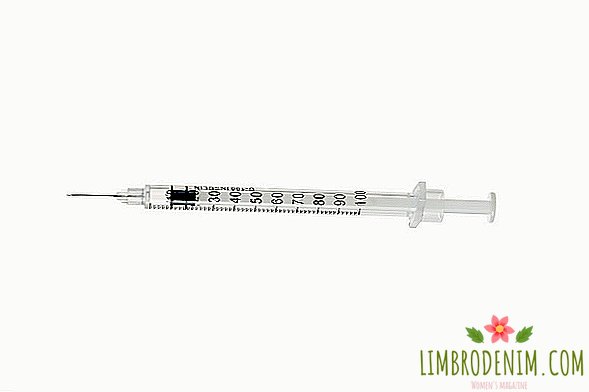6 simple steps: How to help a person who has experienced sexual abuse
A year ago in social networks at the suggestion of Anastasia Melnichenko, a Ukrainian journalist and public activist, a flash mob began # I’m afraid to say that the public has been confronted with the incredible prevalence of sexual violence in Russia and the former USSR, and in most cases women and children suffer from it. Confusion was a frequent reaction of those whom the violence did not personally touch, because caring people would like to help, but have no idea how to do it.
Some of them are convinced that the survivors of sexual violence in the Russian police are treated like at the beginning of the third season of Broadchurch: they delicately, respectfully, immediately offer medical assistance, prevention of possible consequences and psychological support. In fact, the victims have to solve most of the issues on their own, and in a short time, when they may not have the necessary strength and endurance. So, if your relative or girlfriend is in trouble, use your feelings of grief, aggression and empathy to help minimize the consequences. Our instruction is written in terms of helping a woman - how a crisis center that helps men works can be found here.

1
Help regain control of the situation
The first reaction to the news of what happened is often expressed in phrases like "How did you manage to!" or "I have long said that he is a goat!". This helps the speaker to relieve tension, because it demonstrates the controllability of the world in which someone voluntarily made mistakes, but does not help the victim of sexual violence at all. Thus, she is told that she herself is to blame for what happened, because, they say, she could have prevented everything. So the right reaction sounds more like: “Do you need help? Should I come? Can I do something for you?” Do not demand consent for help, but offer it and support the opportunity to make decisions on your own that the abuser took away.
It may turn out that a woman is so shocked and disoriented that she cannot make a decision yet. Then help if you do not get a clearly articulated "no." Ask what she would like now: it could be a conversation about what happened or anything, she wants to hug or, conversely, that no one touches her. She may need help with household chores, with children or having to tell relatives about the incident, as well as moral support or the need to move to a safe place if the abuser is a husband or another person living in the same apartment or nearby. People react differently to traumatic situations, and the vigorous response that everything is in order does not guarantee that nothing will change in an hour. Do not push and do not specify what a woman should, in your opinion, do, even if you are completely sure that you are right, but tell us about the possibilities and amounts of assistance that you are able to provide.
Do not describe how painful and scary you are because of what happened to her, talk about your feelings with someone else. The victim of violence in any case is much worse, and you should not even blame her for your feelings. Another unsuccessful approach: "Spell the name, kill the villain!" If you have performed in a similar spirit before, no one will simply tell you about violence in order not to lose you too. Imprisonment actually threatens murder.
2
Help to contact the police
Most of the rape cases do not go to the police, including because the victim is not in a position to seek help on her own. Your task is to briefly describe what needs to be done, and offer your assistance in applying for and undergoing a medical examination. If a woman hesitates, offer her only a check-up with a doctor: if you wish, you can submit an application later.
Offer to contact the emergency room or call an ambulance, even if there is no visible damage: there may be traces on the body confirming the statement. The doctor must immediately declare rape and make sure that he took the tests, described the damage in detail, in the places where there were traces, took wash-outs or smears, samples from under the nails, as well as seminal fluid, if it remained somewhere on the body. Check if she showed all the places where traces may remain. Check that biological materials and their collection are saved and are described in as much detail as possible in the inspection card: the doctors in the emergency room do not have the qualifications of a criminologist and their testimony may not coincide with the subsequent examination. But they are obliged to notify the Ministry of Internal Affairs, and after some time, the victim must call the investigator with the question whether she will declare rape.
If the survivor immediately agrees to submit an application, and a little time has passed, the examination can be neglected, since the police will still be sent to a pre-investigation medical examination. Save to your smartphone or print a memo on the procedure for submitting an application from the site "Violence.no", it also contains the application form. Help to write in as much detail as possible a statement indicating all the circumstances of the incident, time, witnesses, if any, and possible evidence, or simply do not interfere with your thoughts. Make sure that when submitting your application, you are given a tear-off coupon with the number, date and signature of the person on duty, as well as a referral to a pre-investigation medical examination - but not to the antenatal clinic or trauma center again, but to an expert organization, such as a forensic bureau. However, you can go there yourself, and if you refuse in the direction of the examination - to write a complaint.
After the examination, check that the victim is given a duplicate medical record on the spot. Feel free to ask questions and clarify how the safety of biological materials is ensured, or why there is no data in the map. Someone should ask about it, then it will be too late. The initiation of a criminal case and the investigation will begin after receiving the application and verification.
If possible, a woman should go to a trauma center or to the police and to be examined, without taking a shower, in order to preserve the traces of what happened. Ask her not to brush her teeth if there are marks in her mouth. The physical evidence may be clothing, in which the victim was, and other things (towels, sheets). Collect them in a plastic bag, trying to leave your own traces, take the bag with you. If things are wet, use a paper bag.
3
Help prevent unwanted pregnancy
Offer help with the prevention of unwanted pregnancy and specify if it is necessary. It is not necessary to inquire about the details of what happened, remind that for conception it is quite unprotected vaginal penetration, even if ejaculation has not happened. If a woman does not remember or is not sure what exactly happened, let her decide for herself what the risks of conception are depending on her situation: is she protected (hormones, sterilization or the IUD), on what day of the cycle did everything happen - and, possibly, pregnancy prevention will help her feel control over the situation. The decision on how to act belongs to her, and you can recall circumstances that are easy to forget in a stressful situation and help with the purchase of contraceptives.
There are two effective and easy-to-use contraceptive methods: installing a medical intrauterine device (reduces the likelihood of conception and prevents the fertilized egg from implanting into the uterine wall) or taking levonorgestrel (retards ovulation and reduces the likelihood of conception). Extra manipulation of the genitals after rape can bring additional suffering, especially if there is internal damage, so the tablet is a more humane sentence. There is a perception that levonorgestrel is an abortive means, but in fact it will not interrupt the already occurring pregnancy, therefore this is also a suitable method for women for whom abortion is unacceptable for some reason. Mifepristone preparations are also sometimes called emergency contraception methods, but in fact they interrupt pregnancy, therefore they should be taken only under the supervision of a physician and if the methods of prevention have not worked. Take the drug as soon as possible after what happened (the highest efficiency - in the first day) and no later than 72 hours.
Preparations of levonorgestrel are prescription drugs, that is, they must be discharged by a doctor after an examination and, possibly, testing. Since the beginning of 2017, rules for selling prescription drugs have tightened in Russia, so without a prescription, you can buy a “morning pill” or through online pharmacies that often look through the prescription, or in a small non-chain pharmacy where you know, or hands on condition of unopened packaging and sufficient shelf life. More law-abiding options: to persuade the examining doctors to write a prescription or send to the doctor who will quickly resolve this issue, or arrange a visit to the gynecologist on the same day or the next. And in two or three weeks, suggest that you do a pregnancy test survivor, since postcoital contraception does not provide a 100% guarantee.

4
Help prevent sexually transmitted diseases.
Genital infections with different likelihoods are transmitted with virtually all methods of sexual interaction, especially if they are unprotected and some damage has occurred. At the same time, it is possible to seriously reduce the risk only for hepatitis B, HIV and infections that most often infect women through casual contact and sexual abuse: trichomoniasis, chlamydia, gonorrhea, and vaginal bacteriosis.
The risk of developing hepatitis B is reduced if vaccinated within 72 hours after the incident and then according to the scheme (vaccination occurs in several doses over several months). But 12 weeks after the first vaccination, it is still necessary to pass an analysis in order to understand whether you need to see a doctor. Check with the victim if she has been vaccinated for the last ten years from hepatitis B, and, if she wishes, help arrange vaccination.
To reduce the risk of developing HIV, contact your local center for the prevention and control of AIDS; they can conduct post-exposure HIV prevention — a course of several antiretroviral drugs during the month. The course must be started within 72 hours after the incident, and you will need to be tested and consulted, so you need to get to the doctor as soon as possible. However, in Russia there are interruptions in the supply of drugs, they may refuse to serve a person without permanent registration, so finding out these details is just the case for a person who wants to help. HIV testing after the event is necessary every three months during the year.
The risk of developing the other listed infections is reduced after a single dose of broad-based antimicrobial and antifungal agents within 72 hours after the incident.
The US Centers for Disease Control and Prevention recommends the following kit: ceftriaxone intramuscularly (250 mg), metronidazole (2 g), azithromycin (1 g), after four weeks, test for sexually transmitted infections and treat specific identified diseases if they are found. Your task is to organize interaction with the doctor, who will promptly help decide whether to carry out prevention, because without tests it is a blind fight, and during pregnancy or other circumstances, the drugs may have to be replaced.
5
Help get psychological help
The problem of sexual violence is primarily that it deprives of psychological well-being: it undermines self-confidence, complicates interaction with people, increases the risk of developing depression and is fraught with other long-lasting effects, such as post-traumatic stress disorder. Do not offer alcohol and psychotropic substances to solve problems, because they do not solve anything, but easily bring new ones. Try to find and offer psychological help.
It could be a phone call. by the numbers of specialized psychological help:
 Independent Charitable Center for Assistance to Survivors of Sexual Abuse "Sisters", weekdays from 10:00 to 20:00: +7 (499) 901-02-01;
Independent Charitable Center for Assistance to Survivors of Sexual Abuse "Sisters", weekdays from 10:00 to 20:00: +7 (499) 901-02-01;
 helpline "Anna", weekdays from 9:00 to 21:00: +7 (800) 700-06-00;
helpline "Anna", weekdays from 9:00 to 21:00: +7 (800) 700-06-00;
 emergency medical and psychological phone: +7 (495) 205-05-50.
emergency medical and psychological phone: +7 (495) 205-05-50.
Find out if there are specialized helplines in your city or region, when they work and whether you can reach them.
If there is a financial opportunity, look for a psychotherapist working with the consequences of violence and psychological trauma through friends. Offer to contact him and explain why (for example, good reviews about the specialist). Do not insist on the methods of psychological work that seem effective to you, better tell us about the possible options.
Look for reviews of relevant specialists in urban medical organizations: neurosis clinics, psychiatric wards of hospitals, mental hospitals and clinics. Sometimes quality assistance can be obtained free of charge.
Ask for psychological help yourself if you have disturbed sleep or appetite, anxiety or other symptoms have appeared. Violence beats all, and to be a witness to other people's suffering can also be hard and painful.
6
Help to live further
Do not rely on the quick work of law enforcement agencies: a lawsuit can last, for example, a year or more, and all this time your loved one will have to constantly talk about traumatic memories and face mistrust, tactless treatment and, possibly, mistakes of the investigation. A rapist can stalk the victim, threaten her and even blackmail, sometimes it is impossible to cope with it. Familiar can turn away from the victim, and from you, if they consider that she has slandered an honest person. Imagine the most pessimistic option you can imagine, and feel relieved when everything goes a little easier.
Do not treat survivors of sexual abuse as crystal vases and do not constantly keep in your mind the fears that they might be hurt. Continue to communicate as before, perhaps by adjusting the behavior based on the circumstances of the incident: for example, you should not discuss the interesting details of the corporate party on which everything happened, and other similar cases or events. Although sexual violence has a serious impact on life, and some can simply be broken, it still does not determine the nature of the survivor: her interests, work and hobbies do not go anywhere, she is the same person as before the crime, she just got into trouble. A return to normal life can take years, but this does not mean that there will be nothing left in the life of the victim. She still needs to earn money, take care of herself and loved ones, learn and have fun.
Do not try to take responsibility for what happened and the consequences. The idea of a missed opportunity to prevent everything is unbearable, but do not bite yourself, if you were not there at that moment, do not curse yourself, if something went wrong with the police and the investigation, don’t blame yourself if the victim refused to file a complaint and the abuser remained with impunity. We are not able to look into the future, and the responsibility for the violence lies only on one person - on the rapist. It is not in our power to single-handedly defeat the system or turn the survivor of a person into a carefree lucky flick of a finger. We can help and sympathize, we can share and do what is necessary to do, but managing other people is unrealistic. It is more productive to focus on what we can do: provide support, organize (a statement to the police, find a lawyer, interact with doctors, move away from the abuser), help financially, just be near during any development of events and not disappear. After all, for this and need friends.
Photo: daizuoxin - stock.adobe.com, Taigi - stock.adobe.com, yvdavid - stock.adobe.com




